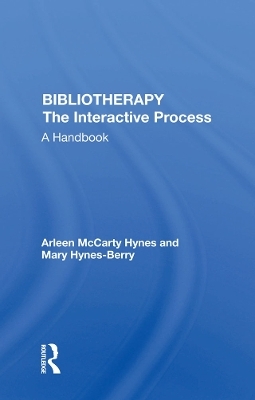The recognition that literature can be a healing tool is as old as Aristotle's discussion of catharsis. In bibliotherapy an individual reads or listens to a work of literature specifically for its therapeutic value. But until now a real professional tool was lacking. This handbook, the first of its kind, is designed to teach both professionals and laypersons how to use the whole spectrum of literature—from poetry to science fiction—to promote greater self-knowledge, to renew the spirit, and, in general, to aid in the healing process. Beginning with an explanation of the theoretical basis for bibliotherapy, the authors then provide a comprehensive overview of the procedures and goals of the discipline. The material is presented in such a way that the process may be adapted to the particular educational or psychological approach favored by the practitioner for the therapeutic treatment of individuals who have been abused or are chemically dependent, physically disabled, emotionally disturbed, hospitalized, in correctional institutions, or simply facing difficult or stressful life situations. The authors also offer insights for using bibliotherapy to promote the healthy growth and development of children and to provide psychological help and guidance to adults and the aging. Case studies from practice and training experiences illustrate the principles of bibliotherapy; in addition, the authors include end-of-chapter study questions for persons involved in therapy and self-help and practicum guides for professionals. Taken together, these materials comprise a unique and invaluable reference work in a new and significant field.
Introduction: A Reader's Guide -- Basic Understandings -- Interactive Bibliotherapy: A Definition -- The Goals of Bibliotherapy -- The Bibliotherapeutic Process -- Literature: The Tool of Bibliotherapy -- Criteria for Choosing Bibliotherapeutic Materials -- Strategic Choice of Bibliotherapeutic Materials -- Resources and the Management of Bibliotherapeutic Materials -- The Bibliotherapist -- Personal Traits of the Bibliotherapist -- The Bibliotherapist's Responsibilities -- Strategies for Facilitating a Bibliotherapy Session -- Facilitating Creative Writing -- The Participant -- Analyzing the Role of the Participant -- Dynamics of the Group in Bibliotherapy -- Afterword -- Listening Exercises -- Bibliotherapists' Records -- Professional Organizations



